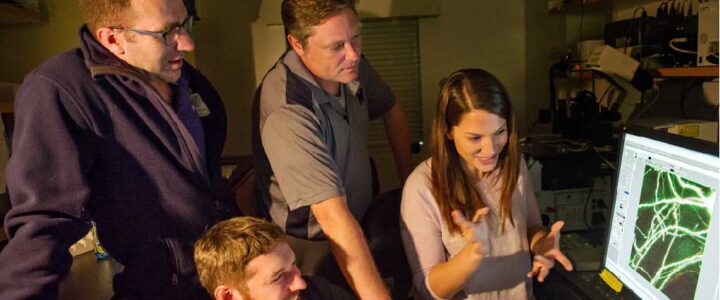Discover how Dr. Peter Todd’s latest Fragile X Syndrome research offers hope for advanced treatments and a possible cure, marking a new era in FXS therapy.
Read moreAuthor: Theodore Coutilish
Newly Diagnosed with Fragile X – What Comes Next?

Jessica Haugen and Jeff Eliason received the phone call every parent dreads in October 2012. Their son’s pediatrician told them their son, Larry, then 1, had Fragile X syndrome (FXS) and “there’s nothing you can do about it.” The couple reacted similarly to how other newly diagnosed parents receiving these results. Denial. Discouragement. Depression.
Read moreComing Full Circle – Kathy May Returns back to FRAXA

Co-Founder Kathy May returns after two decades to share her story. It’s about discovering new forms of treatments to enhance the mental, emotional and social growth of those affected by Fragile X. “And there will be a cure,” she said. “FRAXA is the reason for this hope. I have come full circle to FRAXA and feeling more hopeful than I have in many years.”
Read moreBrain Imbalance Target of Dr. Erickson’s New Clinical Trial

According to Dr. Erickson, AZD7325 is a drug that selectively boosts GABA neurotransmission in the brain. GABA is the primary neurochemical in the brain that blocks brain activation. GABA activity is in balance in the brain with Glutamate activity, which is the primary neurochemical that causes brain activation. In Fragile X, GABA activity is insufficient and glutamate activity is excessive, likely causing brain activity to be out of balance. AZD7325 attempts to correct parts of this imbalance by boosting the insufficient GABA activity in the brains of people with Fragile X.
Read moreTargeting Serotonin Receptors to Treat Behavioral and Psychological Symptoms
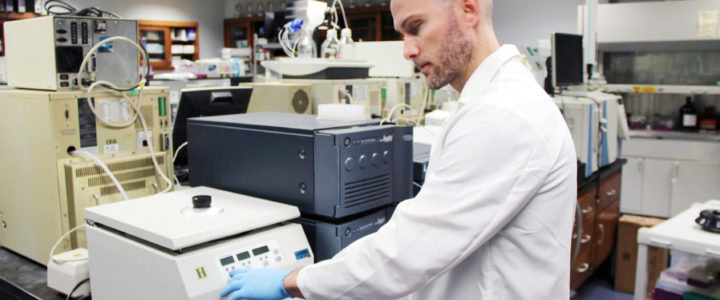
With a $90,000 grant from FRAXA Research Foundation awarded in 2017, Dr. Clinton Canal targets seratonin receptors. “There are 15 unique serotonin receptors (at least) and many of them impact the function of brain circuits that are impaired in neurodevelopmental and psychiatric disorders,” said Dr. Canal. “Results from this project could guide new drug discovery or drug repurposing for Fragile X.”
Read morePreclinical Testing of Sleep-Wake Patterns as an Outcome Measure for Fragile X

FRAXA Research Foundation awarded $122,000 over 2016-2018 to Dr. Cara Westmark at the University of Wisconsin at Madison for studies of sleep disorders in Fragile X syndrome.
Read moreMetformin, Diabetes Drug, Potential Fragile X Treatment

“We treated mice with metformin and corrected all the core Fragile X deficits. We are optimistic about using metformin in human clinical trials. This is a generic drug with few side effects” says Nahum Sonenberg, PhD, James McGill Professor, Department of Biochemistry, McGill Cancer Center, McGill University.
Read moreFragile X Nervous (System) Breakdown

“The occurrence and development of events by chance in a happy or beneficial way.” That’s how Lynne E. Maquat, PhD, describes the process of how her research extended to Fragile X syndrome to better understand it and ultimately find advanced treatments.
Read moreFragile X Research Tackles High Anxiety – Peter Vanderklish

Yes, we all know the signs of Fragile X anxiety: Ears begin turning red followed by incessant pacing, heavy breathing, stiffening body, flapping, jumping, avoidance or yelling. Sometimes, it’s the more severe screaming, pinching, scratching, biting and general tearing things up or, worse, the nuclear meltdown.
Read moreA Kinase Assay as a Biomarker for Fragile X Syndrome
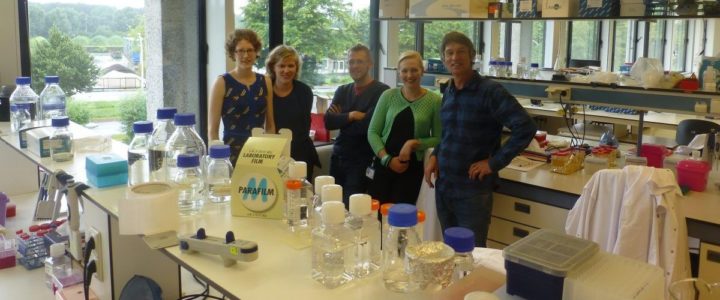
With a $90,000 grant from FRAXA Research Foundation over 2017-2018, Dr. Frank Kooy at the University of Antwerp, Belgium, is investigating whether phosphorylation abnormalities are a suitable biomarker for the Fragile X syndrome.
Read moreUniversity of Cambridge Startup Healx is Rapidly Identifying Existing Drugs to Help Fragile X Patients

FRAXA awarded $44,000 to Healx in 2017 for drug repurposing to find new treatments for Fragile X syndrome. The results of this study include eight top “hits” which show promise for Fragile X. FRAXA is further investigating these hits.
Read moreTrial and No Error: Better Outcomes for Clinical Trials in Fragile X Syndrome
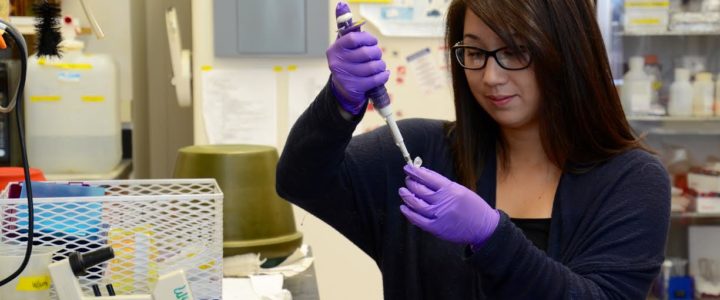
Johns Hopkins researcher Christina Timmerman, PhD, searches for a less subjective method to determine if a drug is working in patients with Fragile X syndrome. Many parents of children with Fragile X syndrome were crushed when promising drug trials were unexpectedly stopped a few years ago because subjective behavior-based outcome measures did not justify continuing the trials. The strong feelings linger today. If all goes well with Christina Timmerman’s research, future drug trials may be able to continue with additional metrics for assessment, until there are advanced treatments or even a cure for Fragile X syndrome.
Read moreNIH Investigator Carolyn Beebe Smith, PhD, Looks to Improve Sleep in Fragile X Syndrome
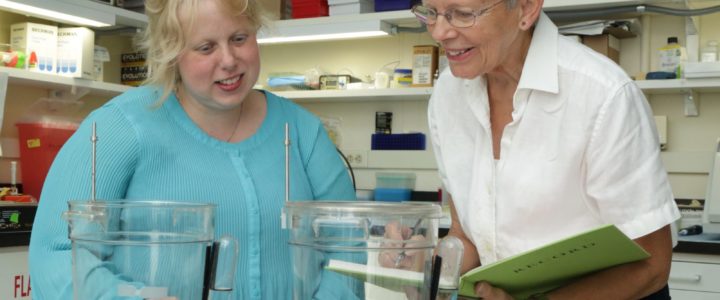
Our sons with Fragile X Syndrome typically go to bed early and rise early. Sometimes they jump on us while we are sleeping at 3 a.m., excited to start their day. For heaven’s sake, why? The answer may come from Carolyn Beebe Smith, PhD, senior investigator, Section on Neuroadaptation and Protein Metabolism, National Institute of Mental Health, National Institutes of Health, Bethesda, Maryland. She is studying why children, in particularly boys, with FXS have problems sleeping.
Read moreNew Fragile X Clinical Trial for Children Launching in June 2017

Rush University Medical Center Professor Elizabeth M. Berry-Kravis, MD, PhD, has launched and is recruiting participants for a large-scale clinical trial to study effects of AFQ056, an mGluR5 blocker, on learning in young children.
Read moreMark Bear’s Goal: Disease-Modifying Treatments for Fragile X

Researcher Mark Bear, PhD, Picower Professor of Neuroscience, sees success developing disease-modifying treatments for Fragile X syndrome and other developmental brain disorders. Finally, hope. And it comes from his lab, The Picower Institute for Learning and Memory, Department of Brain and Cognitive Sciences, Massachusetts Institute of Technology.
Read moreKimberly Huber, PhD, Explores Hyperexcitability in Fragile X Syndrome
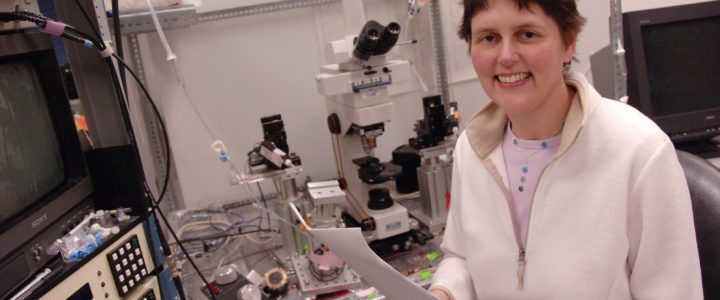
Ever wonder why your child with Fragile X suddenly screams for no apparent reason or jumps and flaps uncontrollably seemingly for hours? You got it: hyperexcitability. But what exactly causes it? And what can fix it? Kimberly Huber, PhD, is working long and hard in her lab to answer those questions. Dr. Huber, professor, Neuroscience, UT Southwestern Medical Center, is seeking to understand how FMRP regulates connections between brain cells, called synapses, and the function of brain circuits, which are several connected brain cells.
Read moreEnhancement of NMDA Receptor Signaling for the Treatment of Fragile X Syndrome
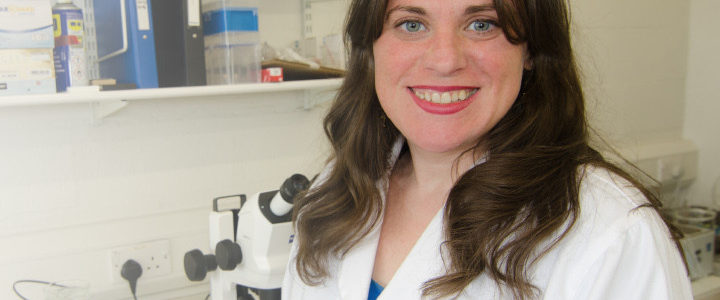
FRAXA Research Foundation funded a 2016-2017 Fellowship for Dr. Stephanie Barnes in the University of Edinburgh lab of Dr. Emily Osterweil. With this $90,000 award, the team is investigating NMDA signaling in fragile X syndrome mice.
Read moreIdentifying Biomarkers for Fragile X Syndrome – A Study in Argentina
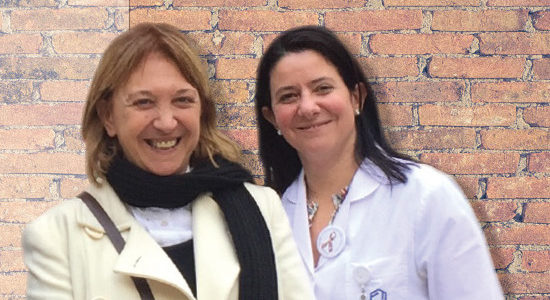
Bio·mark·er, noun, a distinctive biological or biologically derived indicator of a process, event, or condition. Doesn’t help? Well, it’s perfectly clear to Argentinian researchers Patricia Cogram, PhD, and Paulina Carullo, MD, from the FLENI Institute in Buenos Aires, Argentina. They understand there is an urgent need for validated biomarkers after recent Fragile X syndrome clinical trials have failed on their primary endpoints.
Read moreCornell University Researcher Looks to Restore Fragile X Protein in Neurons
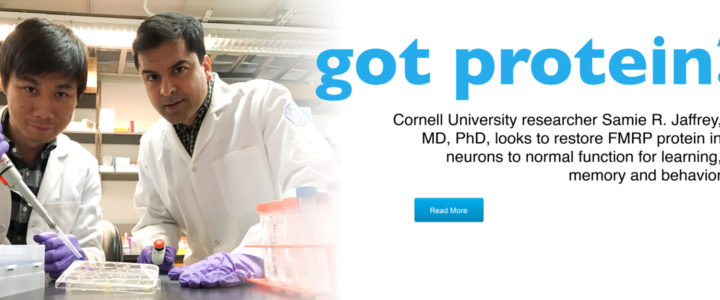
Which is the right FMRP for therapeutic development of Fragile X syndrome? When researchers develop effective drugs that reactivate FMRP — the protein that is normally silenced in Fragile X — what in the world will they do next? So ponders Cornell University researcher Samie R. Jaffrey, MD, PhD. Jaffrey, professor, Pharmacology, Weill Cornell Medical College, Cornell University, knows reactivating FMRP will lead to many important questions, such as: Which cell type needs FMRP? How much FMRP protein is needed to restore brain function? Where in the brain will FMRP protein be needed? Where in a neuron will the FMRP needs to be expressed?
Read moreBrain Revolution: French Scientists Bardoni and Maurin Study FMRP
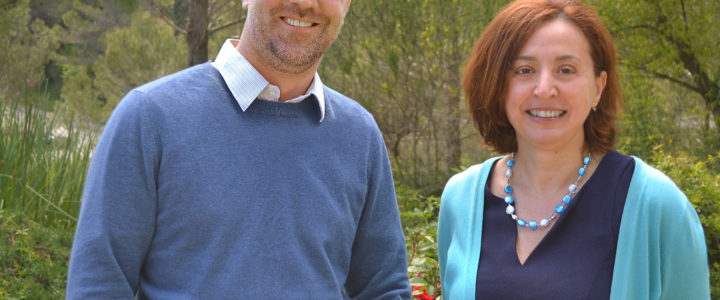
Dr. Maurin and Dr. Bardoni were awarded $90,000 over two years from FRAXA Research Foundation for their project, “Modulating cAMP And cGMP Levels As A New Therapeutic Approach For FXS”, in May 2016. They aim to gain a better understanding of how the brain develops and functions Like snowflakes, people with Fragile X Syndrome are not all alike. Some respond differently to the same drugs, as previous Fragile X research has shown. Understanding this phenomena is leading French scientists Barbara Bardoni, PhD, and Thomas Maurin, PhD, to identify new drugs to improve treatments in patients with Fragile X.
Read moreMemory Lane: New Research to Improve Memory in Fragile X Mice
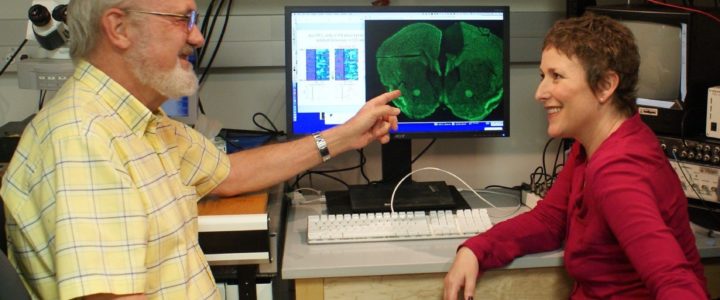
University of Texas at Austin Researchers Daniel Johnston, PhD, and Jennifer J. Siegel, PhD, explore ways to Iimprove memory in Fragile X mice.
Read moreAchieving Predictability: Developing Biomarkers for Fragile X Patients

New York University scientists make progress developing biomarker signatures and cataloging the types of Fragile X patients who will most likely benefit from new therapies. Take a closer look at your son or daughter with Fragile X syndrome. If you meet another child with Fragile X syndrome, chances are he/she may seem totally different to you, yet everyone is united under a FXS diagnosis. Discovering the biological reasons behind these differences is key to identifying which children will respond to what treatment. But how do you find the ‘prediction formula’? New York University scientists may soon know.
Read moreUniversity of Michigan researcher Peter Todd, MD, PhD, Aims to Selectively Turn the Fragile X Gene Back on in Human Cells
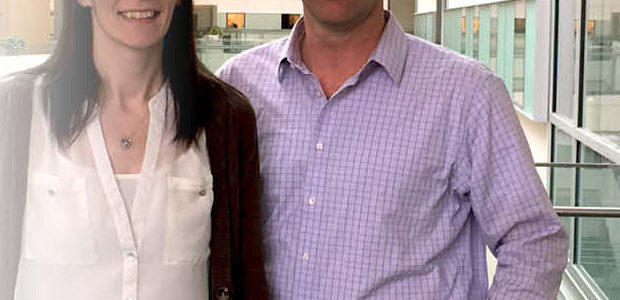
Fish like salmon are born in fresh water streams and rivers. When the time comes for them to breed, they return to the stream of their birth to lay eggs in the same spot where they were born. To accomplish this, they must swim upstream against the current or flow of the stream. Taking a page out of the salmon DNA playbook, University of Michigan scientists Peter Todd, MD, PhD, and postdoctoral fellow Jill Haenfler, Ph.D., are exploring unchartered waters to find a cure for Fragile X Syndrome. The researchers are adapting CRISPR research to reactivate the FMR1 gene, which provides instructions for making a protein called FMRP — needed for normal brain development.
Read moreMeltdown no more? Targeting Hypersensitivity in Fragile X
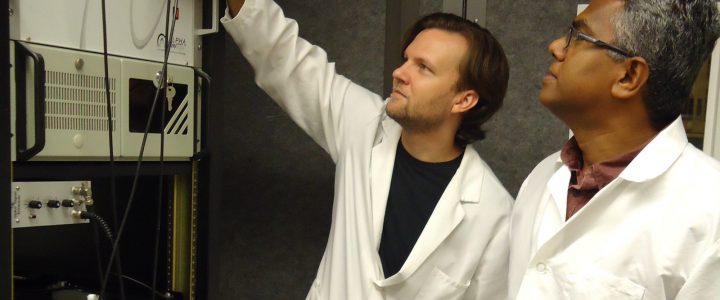
We’ve all been there. Our child with Fragile X hears something and becomes excited. Very excited. Hand flapping follows with non-stop jumping and ear-piercing squawking. Nothing helps. No meds. No iPhone. No magic toy. Several minutes go by. Sometimes longer. How many times have you apologized in a grocery store — or restaurant — or at the mall? Wouldn’t it make our lives better if this unpredictable excitability was minimalized or eliminated? That’s the premise behind research being conducted at University of California, Riverside. Principal Investigator Khaleel Razak, PhD, and postdoctoral fellow Jonathan W. Lovelace, PhD, are studying mice genetically altered to mimic the genetic characteristics of humans with Fragile X Syndrome.
Read moreResearcher David Nelson, PhD, Explores New Cell Strategies for Fragile X Syndrome, FXTAS and FXPOI
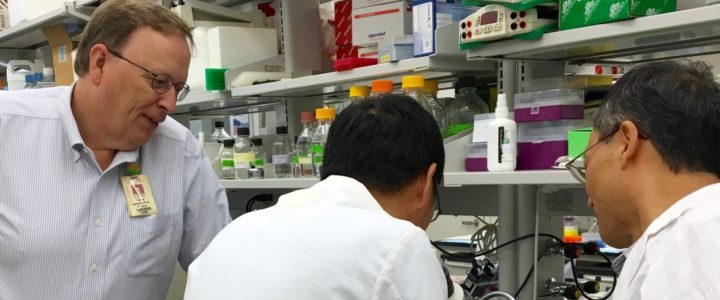
It’s rare to find a researcher working on the Big Three — Fragile X Syndrome (FXS), Fragile X-associated Tremor/Ataxia Syndrome (FXTAS) and Fragile X-associated primary ovarian insufficiency (FXPOI). Then again, David Nelson, PhD, is the rare bird. Nelson is a professor of Molecular and Human Genetics, Baylor College of Medicine, and director of Baylor’s Graduate Program in Integrative Molecular and Biomedical Sciences. He has been involved in FXS research since the late 1980s where he helped identify the mutation and the FMR1 gene. These days, researchers in Nelson’s lab at Baylor are studying FXS, FXTAS and FXPOI using mouse models.
Read more
